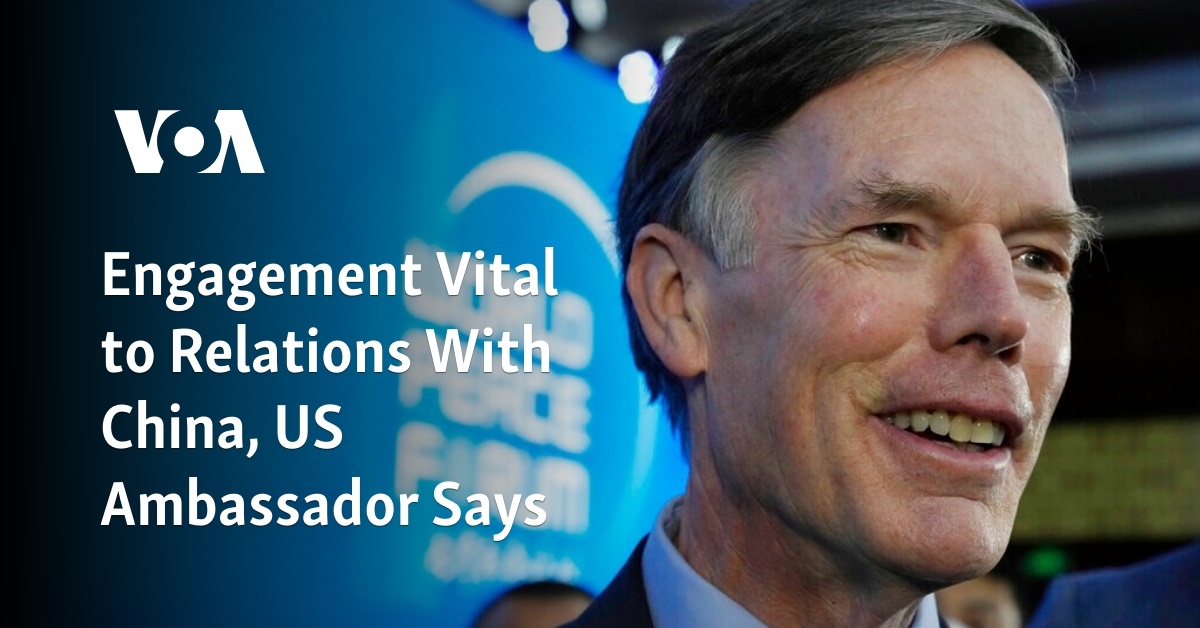The U.S. ambassador to China stated that the relationship between the United States and China will be characterized by strategic competition in the future, but there should also be engagement when their interests align. This comes after President Joe Biden’s meeting with Chinese President Xi Jinping aimed at stabilizing the tense relations between the two countries. The ambassador emphasized that the U.S. and China are competing in various aspects, including military, political, and economic arenas, as they both strive for global and regional power. Despite these rivalries, there are areas where the two countries need to collaborate, such as addressing climate change, narcotics, global health, and food security. The goal is to maintain a balanced relationship and minimize the likelihood of conflict, while also fostering cooperation. The U.S. is reevaluating its relationship with China following a period of turbulence marked by tariffs, the COVID-19 pandemic, and military tensions. While progress has been made, there are still differences in economic competition and global security. Both countries are seeking to strengthen relationships with like-minded nations, and the Biden administration has maintained certain tariffs on Chinese goods while implementing stricter controls on exports and investments in advanced technology. China, on the other hand, expressed its commitment to creating a favorable business environment and providing more opportunities for global businesses, including those from the United States. Despite China’s economic slowdown in the third quarter, it remains optimistic about its future prospects.
The U.S.-China relationship will be characterized by strategic competition, but also requires engagement when the interests of the two countries align, according to the U.S. ambassador to China, Nicholas Burns. The two nations are competing militarily, politically, and economically, with China aiming to become the strongest power in the Indo-Pacific region. Despite their rivalry, Burns emphasized the need for collaboration on issues such as climate change, narcotics, global health, and food security. He stated that a conflict or war between the two countries would be undesirable, and instead, they should work towards a balanced relationship that minimizes the likelihood of conflict. The U.S. is readjusting its relationship with China after a period of strained ties under the Trump administration, which included tariffs, tensions over the pandemic and military activities. President Joe Biden recently met with Chinese President Xi Jinping to stabilize relations and address issues such as combating illegal fentanyl and reestablishing military communications. However, differences on economic competition and global security remain. The Biden administration has maintained tariffs on Chinese goods and implemented stricter export controls and investments in high-tech sectors. China’s economy has slowed in recent months due to weakened global demand for its exports and a crisis in the property sector.
The article is reproduced from Source link
Engagement Vital to Relations With China, US Ambassador Says



